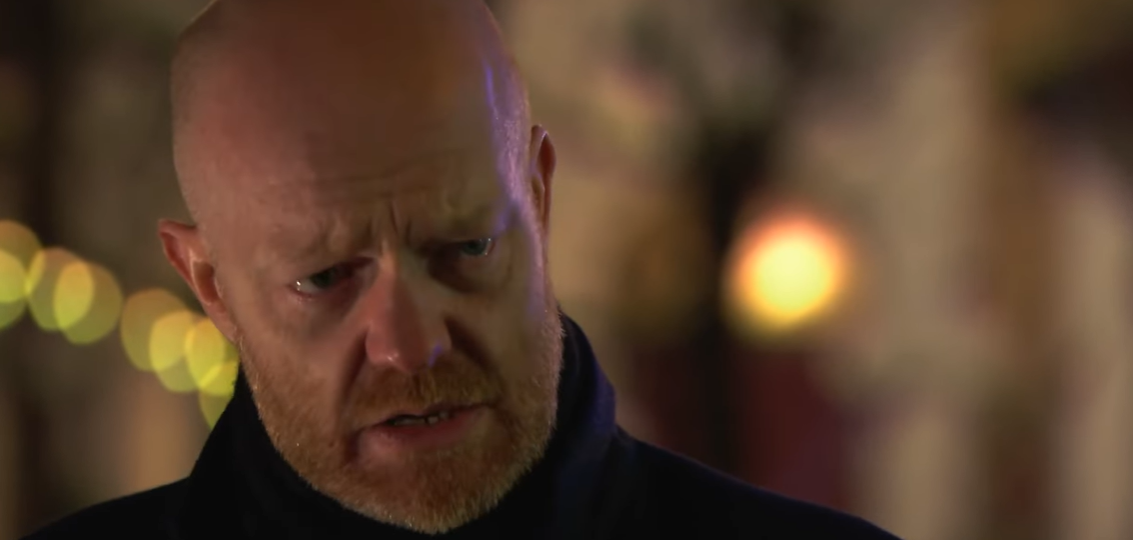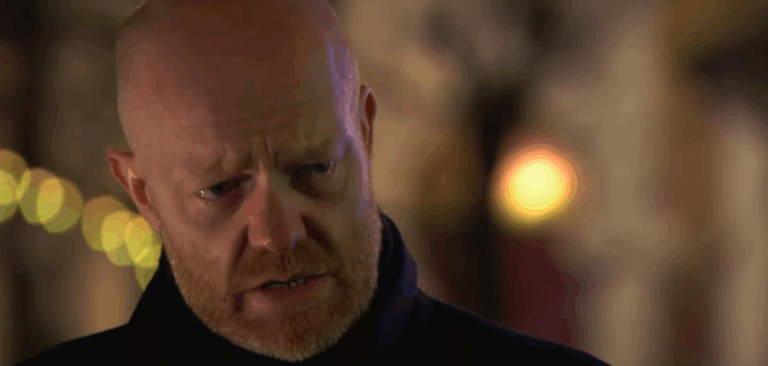Bradley Branning will always be remembered as the calm contrast to his father’s mayhem. His 2010 rooftop death, which was aired during EastEnders’ 25th anniversary live episode, was incredibly poignant and, for many, represented the terrible price of secrets. It was incredibly successful in shocking viewers and establishing Bradley as the moral role model Max would never be able to fulfill. His passing left viewers mourning a decent character, highlighting how familial relationships in soap operas are frequently both a boon and a bane.
But the energy changes with Oscar Branning’s return. Oscar was born in 2007 amid turbulent circumstances—Max gave birth to him at home following Tanya’s late labor—and his early years were characterized by more subdued plots. His recent reintroduction as a disturbed adolescent recently discharged from a juvenile delinquency center feels especially novel. In addition to indicating continuity, Pierre Moullier’s 2025 casting represents a daring attempt to bring new vitality to a dynasty that formerly controlled Albert Square.
With its flurry of affairs, betrayals, and reconciliations, the Branning family has always been a symbol of emotional entanglements. Christmas in Albert Square is rarely a time of calm, as demonstrated by Max’s notorious affair with Stacey Slater, the wife of his son Bradley, which was remarkably similar to past soap opera scandals like Sharongate. However, EastEnders is now experimenting with examining juvenile crime, broken homes, and the tenacity of second-generation soap characters through Oscar. His plot effectively captures the anxieties of modern society while preserving the Branning name.
Bio Data and Family Information
| Attribute | Details |
|---|---|
| Character | Max Branning |
| Portrayed By | Jake Wood |
| First Appearance | June 27, 2006 (EastEnders) |
| Sons | Bradley Branning (deceased), Oscar Branning, Half-brother to Annie Carter |
| Bradley Branning | Son with Rachel Branning, died 2010, central to Lucy Beale murder arc |
| Oscar Branning | Son with Tanya Cross, born 2007, recently recast with Pierre Moullier (2025) |
| Key Family Members | Tanya Cross (ex-wife), Lauren Branning, Abi Branning, Jack Branning |
| Occupation | Car dealer, businessman, schemer in Walford |
| Notable Storylines | Bradley’s death, Oscar’s turbulent teenage years, custody battles |
| Reference | EastEnders Wiki – Oscar Branning |

The ghost of Bradley’s legacy lingers in the background. His passing continues to highlight Max’s shortcomings as a father because he served as the family’s moral compass. Supporters frequently observe that Oscar’s rebellious path seems to descend into chaos much more quickly than Bradley’s slower, more tragic spiral. One son represents decency extinguished, while the other represents the shadow of paternal flaws. This juxtaposition offers a multi-layered narrative.
Reinvention is key for soap operas, and the show’s recent move to legacy family arcs made the decision to bring Oscar back after almost ten years much better. EastEnders understands that well-known last names have significance, much like Coronation Street depends on the Barlows and Emmerdale on the Dingles. Oscar’s character versatility stems from the fact that he is neither a victim nor a villain. His decisions both mirror Max’s own transgressions and offer chances for atonement, providing authors with a wealth of inspiration.
It is impossible to overlook the social component. Oscar’s issues reflect broader worries about juvenile crime and rehabilitation, while Bradley’s passing spurred national discussions about mental health and police pursuits. EastEnders is surprisingly successful at igniting domestic conversations that go well beyond Walford by incorporating Oscar into these modern debates. Through his hardships, the program brings to light more general problems with dysfunctional families and systems—themes that are remarkably current.
Given their legendary status, Pierre Moullier acknowledged that it felt strange to be a part of the Brannings. Oscar is already being shaped by his on-screen persona as a young man torn between rebellion and redemption, a character built for erratic plotlines. Oscar’s storyline illustrates a larger tactic in the context of television trends: soap operas are putting more emphasis on youth representation in order to stay up with changing demographics. His presence is especially helpful in connecting younger fans eager for modern stories with older viewers who are nostalgic for Bradley.
Max’s sons are also significant symbolically. Oscar symbolizes the chaos Max passed down, and Bradley stands in for the conscience Max lost. Even during his extended absences, Max remains eternally relevant because of this duality. Given that Jake Wood is rumored to be reprising the role, viewers expect father-son conflicts to take center stage in future storylines, evoking allusions to Shakespearean family tragedies in which the father’s transgressions invariably haunt the children.
The audience’s reaction has been enthusiastic. Conversations on social media reveal fans remembering Bradley’s soft charm and others wondering about Oscar’s more sinister path. The Branning legacy is particularly resilient in soap opera history because of the contrast between mourning for a son who has passed away and looking forward to a son who has been reimagined. Because their imperfections are so fundamentally human, the Brannings persevere, much like the Mitchells do through their grit.
In the end, Max Branning’s sons are more than just fictional characters; they are reflections of the hopes and fears of society. While Oscar’s storyline mirrors current issues with youth identity and resilience, Bradley’s story served as a lesson in the frailty of goodness. Both demonstrate how EastEnders, despite airing for decades, manages to stay remarkably relevant by fusing classic family drama with contemporary social issues.


